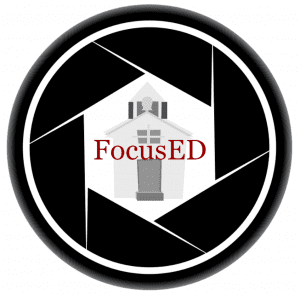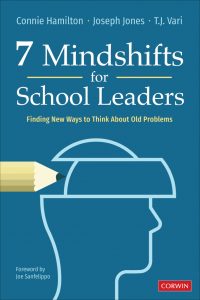
Two Books that Every School Leader Must Read To Rethink Accountability and Student Achievement in Schools
Great School Leaders are Avid Readers
Learning and growing as a school leader through reflection, training, and experience is a professional choice. One powerful way to improve is through reading great books, which is why we feature a couple each month. Our aim is to link great books to our theme for the month. This month we are focused on rethinking what accountability looks like in schools.
We’ve heard from our subscribers that this content is being used as a leadership development curriculum. Kudos to you for investing in yourself as a school leader to grow and improve.
When we think about accountability, a school leader’s mind typically races to state and federal accountability–state assessments, scorecards, and different measures and metrics. This month we wanted to take a different look at accountability, one that speaks to the heart of the work within schools and that drills down into the classroom.
For that reason, we chose two books that get granular with very specific examples of what schools are doing and how to guide practice for improvement.
Joe’s Pick: What School Could Be: Insights and Inspiration from Teachers across America
Featured Author: Ted Dintersmith
This is a unique book because Dintersmith visited schools across the U.S. and reported on some incredible schools doing great work. Very early on in the book, he introduces us to the key principles that emerged as he visited schools across America. He identifies them as P.E.A.K.:
- Purpose
- Essentials
- Agency
- Knowledge
Each of the four represents key aspects of high-level performance that can be implemented by school leaders. This is why this is a great book for accountability; it describes what is working and what may be very helpful in another school or district. Sustainability and replicability are as important as the identified practice itself.
He also provides a provocative overview of how we got to where we are in regard to schooling. His brief overview and a short history of state tests, rankings, and institutes of higher education are fascinating as he describes their impact on innovation in schools.
Lastly, this book is filled with real stories from the field. You won’t be disappointed. Get your copy of What School Could Be today.
T.J.’s Pick: Practice Perfect: 42 Rules at Getting Better at Getting Better
Featured Authors: Doug Lemov, Erica Woolway, & Katie Yezzi
There are a few reasons why we love this book. One reason is that the journey to this book’s creation started in a high poverty school, detailed in the book that many are familiar with, Teach Like A Champion. Two, this book is about getting better through practice. Programs are great, but they are only as effective as the individual using them. In our accountability approach, we have a very teacher-centric focus.
A common issue in education is our lilly pad approach to change. Too often, schools jump from one initiative to the next in search of a better program that will yield greater student learning. This isn’t due to leadership laziness in schools, but rather an attempt to find a solution in a short amount of time. However, true growth requires time and practice–Perfect Practice. As T.J. describes in his account, the authors detail key practices like Name It, Make It Fun, and Apply First then Reflect as key tools to improving. Practice also goes perfectly with feedback, which is an essential ingredient to improvement.
Enjoy both of these books to lead better and grow faster as school leaders.
Let us know what you’re reading by contacting us at [email protected]. And don’t miss our leadership newsletter every week by subscribing on the site.
We can’t wait to hear from you.
This episode of our ReadThisSeries was brought to you by GhostBed, a family-owned business of sleep experts with 20+ years of experience. With 30K+ 5-star reviews, you can’t go wrong with GhostBed. Their mattresses are handcrafted, and they come with a 101-night-at-home-sleep trial. For a limited time, you can get 30% by using our code — SH302 — at checkout. And, even if you tell someone about GhostBed, you can earn a $100 referral reward. Go to Ghostbed.com today and use SH302 at checkout.












 7 Mindshifts for School Leaders: Finding New Ways to Think About Old Problems.
7 Mindshifts for School Leaders: Finding New Ways to Think About Old Problems. 


